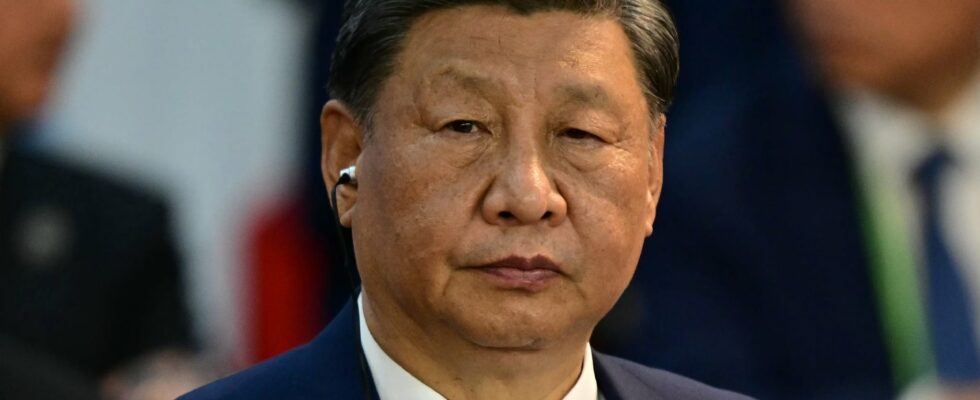In China, corruption in the army is endless. It is such that it could have disrupted the country’s progress toward its military modernization goals by 2027, the Pentagon said in its annual report on the Chinese army published Wednesday December 18.
In 2023, the Chinese military “experienced a new wave of corruption investigations and dismissals of senior leaders that may have disrupted its progress toward its stated modernization goals for 2027,” notes this annual report, mandated by the US Congress. on Chinese military and security developments. “Between July and December 2023, at least 15 high-ranking military officers and defense industry executives were removed from their posts,” the Pentagon document said. “Several leaders under investigation or removed for corruption oversaw equipment development projects related to the modernization of the People’s Republic of China’s land-based nuclear and conventional missile arsenal,” it adds. .
Expansion of the nuclear force
The dismissal of the 15 senior officials is likely just the “tip of the iceberg,” Ely Ratner, the U.S. assistant secretary of defense for Indo-Pacific security affairs, told a Washington think tank after publication of the report. Chinese leaders would not take such extreme anti-corruption measures unless they felt the PLA’s operational effectiveness was being affected, he said.
Corruption in the military is not new, but it has seeped down to the top military leadership. Additionally, in November, China announced that Admiral Miao Hua, who served on the Central Military Commission, the country’s highest military command body, was under investigation for “serious violations of discipline.” Miao Hua was the military’s top policy official on the six-person commission, headed by Xi Jinping. And it seems that he is not the only senior military official in the sights of Xi Jinping’s anti-corruption brigade. At the end of November, the British newspaper The Financial Times revealed that the Chinese Minister of Defense himself was the target of an investigation.
China’s official modernization goals for 2027 include accelerating the integration of intelligence, mechanization and other tools while increasing the speed of modernization of military theories, personnel, weapons and equipment, a the Pentagon said. Despite corruption, China has made progress, notably in operational nuclear warheads, which increased from more than 500 last year to more than 600 in 2024, according to the report. “The expansion of the nuclear force [NDLR : de Pékin] will allow it to target more American cities, military installations and command sites than ever before in the event of a nuclear conflict”, further underlines the text. According to the Pentagon, the Chinese air force is also making progress and ” is rapidly approaching American technological standards”. China also has the “first arsenal of hypersonic missiles in the world and has considerably developed its conventional and nuclear hypersonic missile technologies over the last twenty years”, according to the report.
Controlling Taiwan, always an objective
The report also mentions China’s still significant interest in the island of Taiwan, which it claims as an integral part of its territory. According to the Pentagon, China’s increased military pressure against Taiwan “continued to erode long-standing norms in and around” the island in 2023.
Beijing has said it wants to be ready to control Taiwan by 2027, by force if necessary. China maintains a naval presence around the island, has increased passes through Taiwan’s air defense identification zone and has conducted major military exercises nearby. In November, China deployed dozens of navy and coast guard vessels in what appears to be the largest maritime exercises targeting Taiwan since the 1990s.
China’s Foreign Ministry called the report “irresponsible” and called it an excuse used by the United States to maintain its military hegemony. “We urge the United States to abandon this typical Cold War mentality and stop sending these irresponsible reports year after year, instead of working to maintain stability between the United States and China.” , reacted Thursday Lin Jian, spokesperson for the Chinese Ministry of Foreign Affairs. Despite China’s slowing economy, Beijing’s defense spending has been estimated to be between 40 and 90 percent higher than what it announced in its state defense budget, equivalent to $330 billion to $450 billion in spending. of total defense for 2024.
